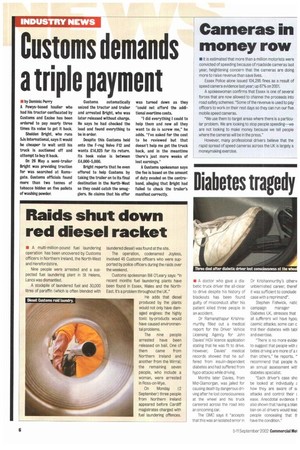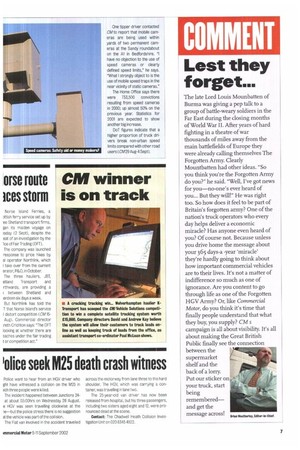Cameras in money row
Page 6

Page 7

If you've noticed an error in this article please click here to report it so we can fix it.
• It is estimated that more than a million motorists were convicted of speeding because of roadside cameras last year, heightening concern that the cameras are doing more to raise revenue than save lives.
Essex Police alone issued 104,295 fines as a result of speed camera evidence last year; up 67% on 2001.
A spokeswoman confirms that Essex is one of several forces that are now allowed to channel the proceeds into road safety schemes: "Some of the revenue is used to pay officers to work on their rest days so they can run our five mobile speed cameras.
"We use them to target areas where there is a particular problem. We are looking to stop people speeding—we are not looking to make money because we tell people where the cameras will be in the press."
However, many professional drivers believe that the rapid spread of speed cameras across the UK is largely a moneymaking exercise. One tipper driver contacted CM to report that mobile cameras are being used within yards or two permanent cameras at the Sandy roundabout on the Al in Bedfordshire. "I have no objection to the use of speed cameras or clearly defined speed limits," he says. "What I strongly object to is the use of mobile speed traps in the near vicinity of static cameras?
The Home Office says there were 733,500 convictions resulting from speed cameras in 2000; up almost 50% on the previous year. Statistics for 2001 are expected to show another big increase.
DoT figures indicate that a higher proportion of truck drivers break non-urban speed ['nits compared with other road users ( CM29 Aug-4 Sept).




























































































































































